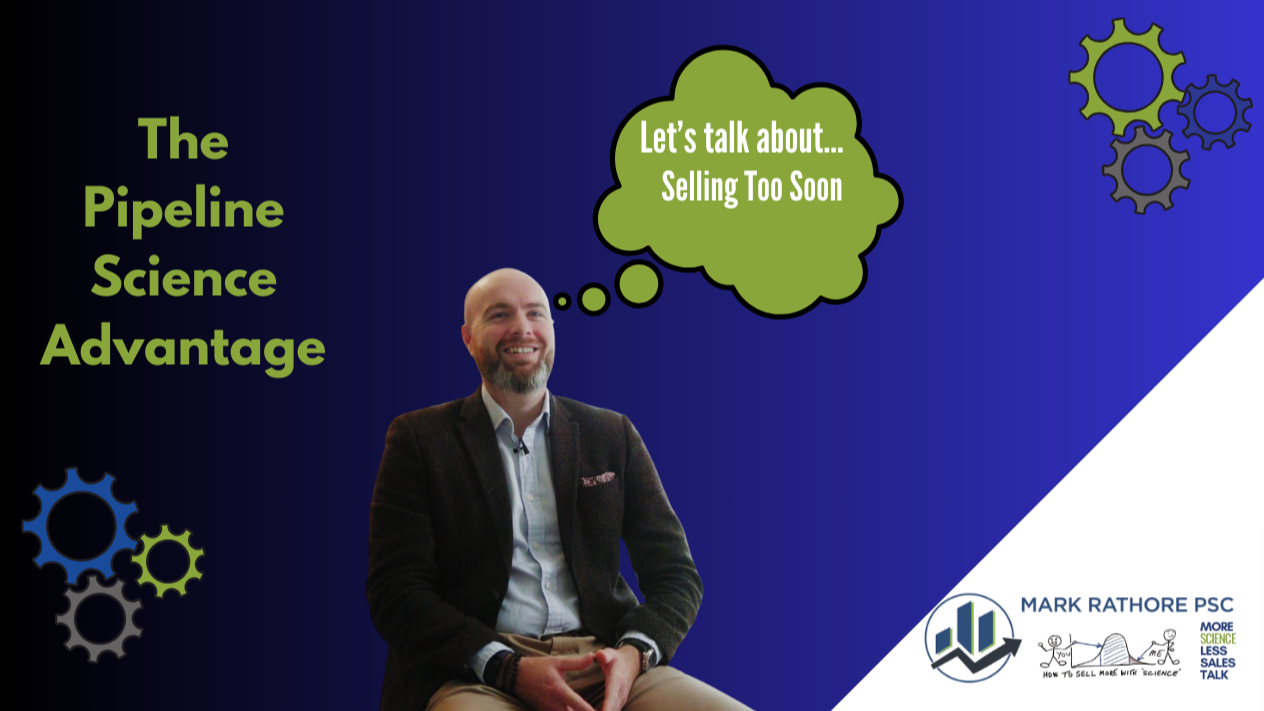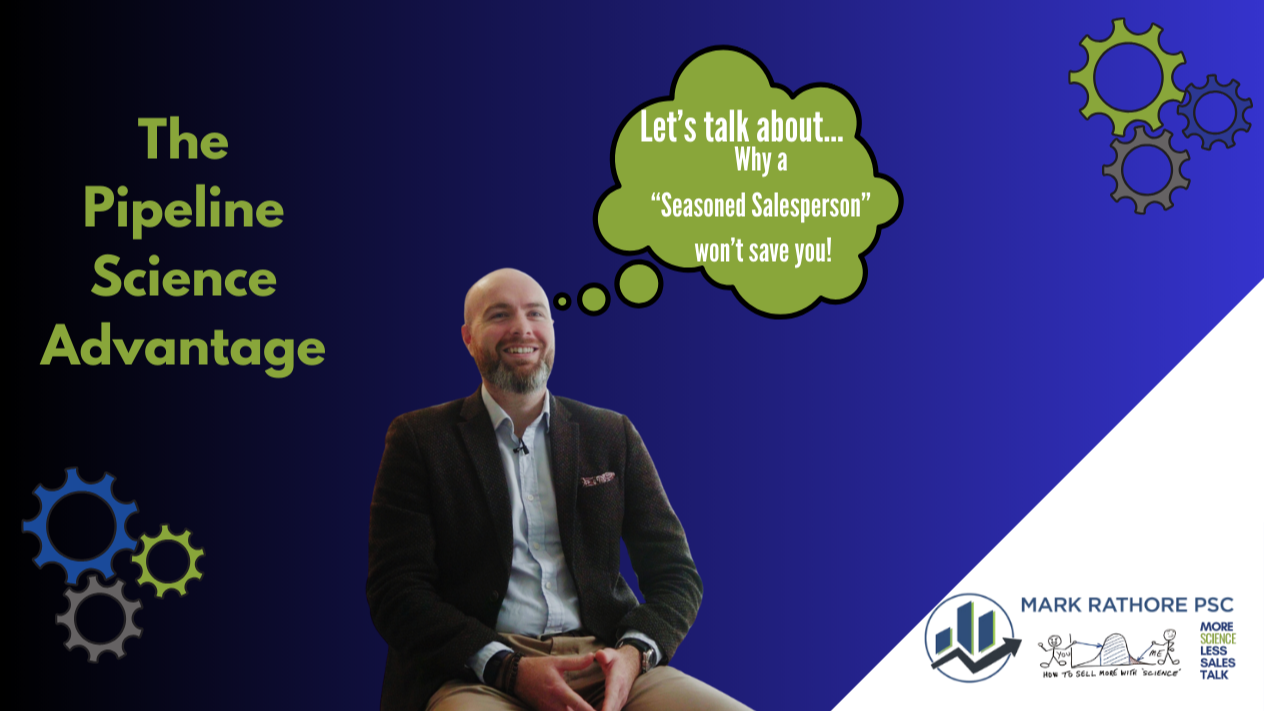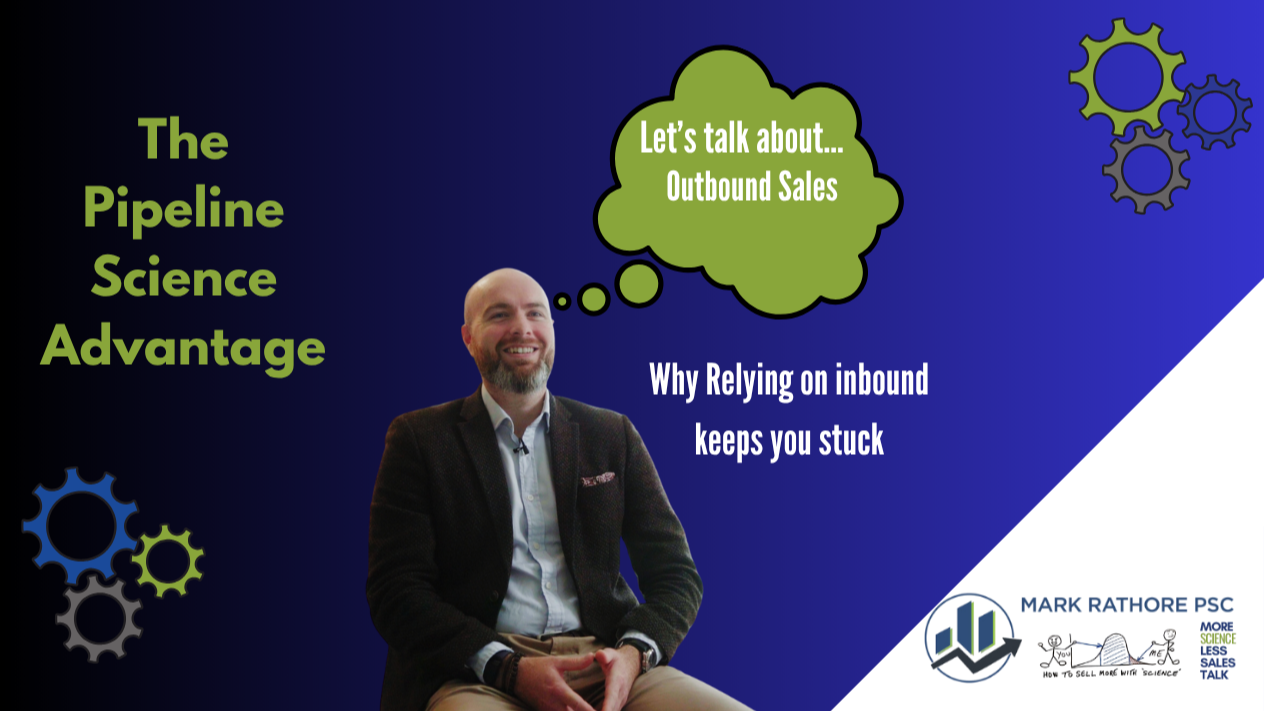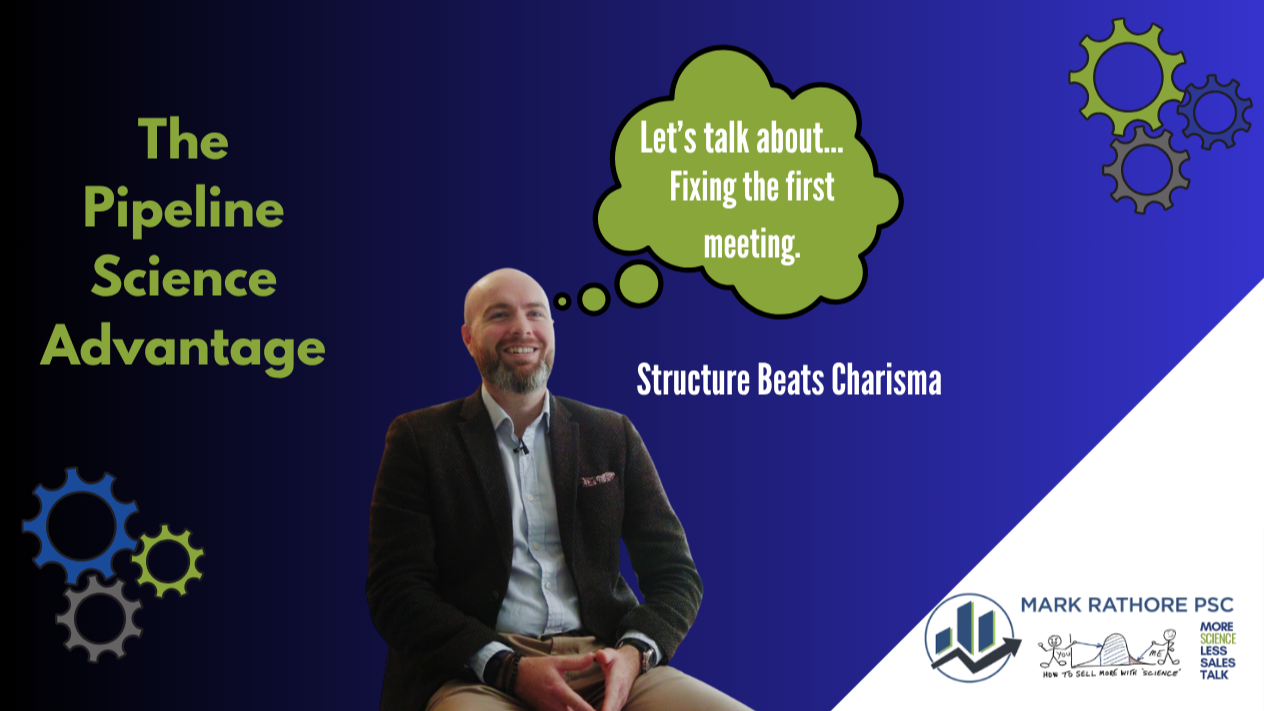You’ve finally got a meeting booked with what looks like a great-fit client. They’ve seen your website, maybe read a case study, and agreed to a call.
Within minutes, you’re in your element.
You explain your service, share success stories, and maybe even start suggesting ways you could help. After all, this is your zone of genius, right?
You get to the end of the meeting, feeling confident.
But then…
“Thanks for your time, we’ll have a think about it and let you know..”
And they don’t. Or they ghost you. Or they ask for a proposal and then go as quiet as the grave.
What just happened?
You sold too early.
The Sales Mistake That Engineers Keep Making
In technical industries like manufacturing, engineering, and automotive, we often think that the way to win trust is to demonstrate our knowledge straight away.
“If I can show them how much I know, they’ll see I’m the expert, and they’ll want to work with us.”
But it backfires.
When you start by talking about yourself, your process, your history, your technical spec… before you’ve asked a single meaningful question… You skip the most important part of sales: discovery.
You think you’re building credibility. But in reality, you’re doing one of three things:
1️⃣ You’re overwhelming them
Instead of building clarity, you’re adding complexity. You’re asking the prospect to make sense of your offer without first helping them articulate their problem.
2️⃣ You’re assuming trust before it’s earned
If someone’s not yet invested in the conversation emotionally or commercially, it doesn’t matter how good your solution is. They’re not ready to hear it.
3️⃣ You’re turning a strategic solution into a commodity
If you start explaining “how you work” too early, the buyer skips straight to price comparison mode. You get lumped in with everyone else. And that means discounting, delays, and deals that die on the vine. No value has been built in.
What Great Discovery Calls Actually Sound Like
Discovery isn’t a tick-box exercise. It’s where the sale is won or lost.
In high-performing sales teams, early conversations don’t sound like pitches. They sound more like diagnostics and conversation.
Here’s what that means in practice:
- The prospect talks 70% of the time.
- You ask questions designed to uncover impact, urgency, and risk.
- You don’t rush to problem-solve even if you already know the answer.
- You reflect back what you’ve heard, building trust and demonstrating understanding.
And the funny thing?
The less you talk about yourself, the more credibility you build.
5 Questions That Build Trust and Create Value
Here are five questions you can use on your next call to uncover real business impact without a single slide deck or credentials list:
- “What brought you to this meeting / call today?” Understand what’s changed or created urgency. Timing matters.
- “How is this problem affecting your day-to-day operations or cash flow?” Don’t just explore the technical cost, explore the commercial and emotional costs too.
- “What have you tried already?” This helps position you against what didn’t work without directly criticising the competition.
- “What happens if nothing changes in the next 3–6 months?” Make the cost of inaction visible. This is likely to be something many prospects haven’t considered.
- “What would a successful outcome look like?” This gives you the finish line and stops you from overserving.

Change Your View: From Pitching to Positioning
Here’s a reframe that’s helped dozens of engineering-led businesses I’ve worked with:
Your first job in sales isn’t to solve the problem. It’s to make the problem visible and quantifiable.
When your prospect fully understands the true cost of the problem, whether it be time, money, quality, or reputation, only then are they ready to talk about solutions.
Until this, pitching is just noise. You’re selling into confusion, and confused buyers never buy.
How to Structure an Effective First Call
So if selling early doesn’t work, what does?
Here’s a simple structure that builds trust without giving too much away:
Take a look at my last newsletter if you want to know more about over-serving and how it does more harm than good.
1. Frame the call
“Let’s spend the first 20 minutes understanding your situation, then if it feels something that fits with our offer, I’ll share a bit about how we might be able to help.”
This sets boundaries, shows respect for their time, and creates space for real discovery.
2. Ask, don’t tell
Use the 5 questions above to draw out urgency, context, and hidden blockers.
3. Summarise and qualify
“Based on what you’ve shared, it sounds like [X] is your biggest challenge, and [Y] is your priority. Is that right?”
This earns trust and allows you to qualify whether they’re a fit before investing more time.
4. Offer a low-friction next step
If it’s a good fit, propose a clear next step. This ideally would be a paid discovery, workshop or diagnostic.
“The way we usually proceed from here is with a short scoping workshop where we map out your key constraints and opportunity areas, does that sound useful?”
If they’re serious, they’ll say yes. If not, they were unlikely to buy anyway.
Real Talk: This Is Why Many Pipelines Stagnate
Selling too early is the single biggest reason I see technical sales pipelines lose momentum.
Instead of advancing real opportunities, your team ends up:
- Chasing unqualified leads
- Writing unpaid proposals
- Giving away too much for free
- Confusing activity with progress
And it kills your conversion rate.
It also reinforces the feast and famine cycle you’re trying to escape, where a handful of “hot” leads eat up most of your time, but few ever close.
Take Action This Month
Here are 3 actions you can take straight away:
Audit your last 5 sales calls Who did most of the talking? How many turned into actual paid work?
Build your discovery script Write down your 3–5 go-to questions. Use them to steer your next prospect conversation.
Create a paid first step A workshop, audit, or review. Keep it small but structured. Price it. Use it to filter for serious buyers.
If you want help to build a discovery process that’s simple, repeatable, and engineered for results get in touch.
Let’s stop selling too early, and start converting more of the right opportunities, without giving away your best work for free.
Until next time,
Mark Rathore
P.S. What’s your biggest challenge with early-stage sales conversations right now? Reply or message me, I read them all.





Leave A Comment